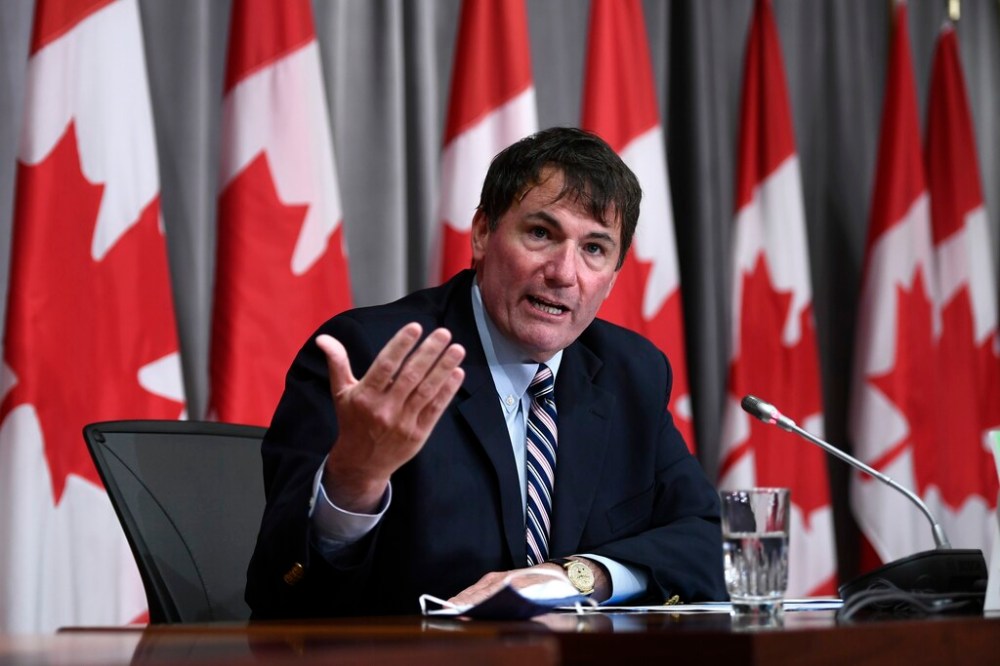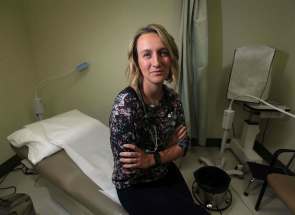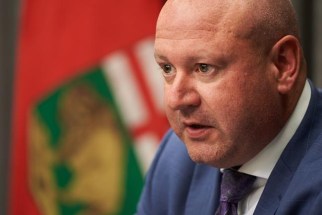Pallister joins premiers to demand health-care cash
Read this article for free:
or
Already have an account? Log in here »
To continue reading, please subscribe:
Monthly Digital Subscription
$0 for the first 4 weeks*
- Enjoy unlimited reading on winnipegfreepress.com
- Read the E-Edition, our digital replica newspaper
- Access News Break, our award-winning app
- Play interactive puzzles
*No charge for 4 weeks then price increases to the regular rate of $19.00 plus GST every four weeks. Offer available to new and qualified returning subscribers only. Cancel any time.
Monthly Digital Subscription
$4.75/week*
- Enjoy unlimited reading on winnipegfreepress.com
- Read the E-Edition, our digital replica newspaper
- Access News Break, our award-winning app
- Play interactive puzzles
*Billed as $19 plus GST every four weeks. Cancel any time.
To continue reading, please subscribe:
Add Free Press access to your Brandon Sun subscription for only an additional
$1 for the first 4 weeks*
*Your next subscription payment will increase by $1.00 and you will be charged $16.99 plus GST for four weeks. After four weeks, your payment will increase to $23.99 plus GST every four weeks.
Read unlimited articles for free today:
or
Already have an account? Log in here »
Hey there, time traveller!
This article was published 18/09/2020 (1908 days ago), so information in it may no longer be current.
OTTAWA — Canadians will continue to suffer because of delays in getting tests and treatment if the federal government doesn’t boost health transfer payments to provinces, says Premier Brian Pallister.
“Right now, millions of Canadians are waiting for an appointment, for a test, for consequential treatment, for surgery. Those delays are painful. A lump that isn’t diagnosed is not fun,” Pallister told reporters in Ottawa on Friday.
The postponing of medical procedures during the lockdown at the start of the coronavirus pandemic offered a sneak peek of what an underfunded health system looks like, he said.
.jpg?w=1000)
“Every single day, right now in Canada, there are people who fear directly the consequences of delay.”
Pallister joined other premiers to hammer out their demands ahead of Wednesday’s federal throne speech. Pallister, Ontario Premier Doug Ford, Alberta Premier Jason Kenney and Quebec Premier Francois Legault met in person in Ottawa, while the other premiers joined the meeting virtually.
They want Ottawa to pay $70 billion for health care annually, or 35 per cent of the cost. It currently pays $42 billion, which is about 22 per cent. The provinces spend $188 billion a year on health care.
The premiers are also calling on Ottawa to expand the fiscal stabilization program, which provides help to provinces facing a year-over-year decline in non-resource revenues.
The program has not changed since 1995 and the money available to eligible provinces is capped at $60 per resident. The premiers are asking for that cap to be lifted.
“Alberta’s been there for Canada, now Canada has to be there for Alberta and other provinces that are facing the greatest economic and fiscal challenge since the Great Depression,” Kenney said at the news conference.
.jpg?w=1000)
The premiers want Ottawa to pump another $10 billion into infrastructure each year for the next 10 years, with flexibility for the provinces to spend the money according to their own priorities.
The federal government, which is giving provinces and territories $19 billion, including $10 billion for health care to help them cope with the fallout from the pandemic, gave a tepid response to the premiers’ demands.
Pallister in Ottawa
Premier Brian Pallister is visiting the nation’s capital at a time when the region is facing a second wave of COVID-19 infections. Ottawa recorded 61 new cases on Friday.
“I have several meetings lined up next week with cabinet ministers, the prime minister, on a number of fronts,” he told reporters during a conference call.
The premier refused to elaborate on his schedule next week, saying he wanted to focus Friday on the need for an improved health funding arrangement with Ottawa.
However, he did say he would prod the federal government to introduce its promised paid sick leave program to encourage people to stay home when they’re ill and not be penalized for following public health advice regarding the coronavirus.
Pallister said earlier this month that he intended to raise the need for federal funding for upgrades to Winnipeg’s North End sewage treatment plant when he visited Ottawa.
As for travelling to a COVID-19 hot spot, Pallister remarked: “We have to learn to live with COVID. We have to be able to do our jobs. We have to be able to protect one another. We can’t learn to live with COVID if we hide in a clothes closet some place.”
The premier’s staff has not released his itinerary for the trip.
“We’ve said that we’re happy to meet with them and we’re happy to discuss that subject… but the priority that premiers attach to an accessible, high-quality health care system is one that we share,” said Intergovernmental Affairs Minister Dominc LeBlanc.
Later Friday, in a phone conference with Manitoba media, Pallister would not specify how he would spend the extra money, which would be $1 billion for Manitoba, if Ottawa fulfils the premiers’ request.
“Our focus is going to continue to be on improving frontline services,” the premier said.
NDP Leader Wab Kinew said the premier should reveal the precise use of the new funding if he wants Ottawa to get on board.
“I don’t think too many people believe that were Ottawa to send more money to this premier that it would actually translate into improved health care,” Kinew said.
“For him to shed crocodile tears is not credible because he’s the guy who closed emergency rooms and cut CancerCare.”
LeBlanc said he was puzzled the premiers got together a week after Prime Minister Justin Trudeau had pledged to meet with them this fall to discuss health transfers.
“What was a surprise for us is that they came to Ottawa today. Take ‘yes’ for an answer,” said LeBlanc.
In his first news conference since taking over the portfolio, LeBlanc struck a more combative tone than his predecessor Chrystia Freeland.
He noted Kenney was part of the Harper government that curtailed health transfers in 2007.

The Manitoba Liberals also pointed out that Pallister voted for that measure as a former MP.
LeBlanc pushed back on the premiers’ demands on infrastructure, noting provinces have been slow to take existing cost-shared programs.
“Let’s start by properly investing the billions of dollars that remain unallocated,” he said, noting an offer by the federal government in August to fast-track shovel-ready projects and more generously fund them.
“Once that envelope has been drawn down, and they have other needs, of course we’d be happy to talk about them.”
dylan.robertson@freepress.mb.ca


.jpg?h=215)






